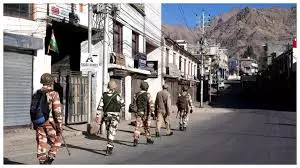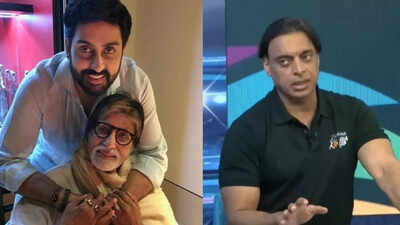
Friends are supposed to be our ride-or-die crew, the ones who see us through every messy chapter. Losing that bond feels different — because the truth is, no date night or couple’s holiday can ever match the unfiltered joy of laughing till your stomach hurts with your best friend. But when a best friend ‘ghosts’ the rejection and loss is unbearable.
When “Seen” Means Silence
Friendship ghosting doesn’t always announce itself dramatically; it starts slowly with a shift so small that you barely could notice. No fight, no closure, no big blow-up. Just blue ticks, unanswered texts, muted statuses, and an invisible wall where there was once constant chatter.
A message left on ‘seen’ is a reply that never comes. Plans are politely dodged, and soon you find the familiar ‘what’s up’ text dry up, and you realize you’re talking to an empty chat window. For graphic designer Anjali Menon (24), the silence from her closest college friend was like “losing a diary that could talk back.” She recalls, “We used to share everything — from what we ate to who we were dating. One day, my texts just stopped being answered. At first, I thought she was busy, but weeks became months. Watching her post online while ignoring me hurt more than any breakup I’ve had.” The sting comes not only from the absence of the person but also from the lack of explanation. Friendship ghosting leaves a vacuum.
The Disappearing Act
Unlike dating, friendships don’t always have explicit conversations about boundaries, expectations, or exclusivity. When someone’s life shifts, it may no longer be convenient to stay connected. This is a universal experience; no one is exempt.
People stop needing things from you, stop reaching out, and eventually drift into their own paths—starting families, moving away, getting busy with school or careers.
Like marriage, friendship requires work. It doesn’t sustain itself automatically. The bar nights, the game nights, the random catch-ups — they don’t plan themselves. If neither person takes the initiative to keep showing up and making it happen, the bond quietly fades. That vagueness makes disappearing easier. “People ghost friends for many reasons — outgrowing the relationship, avoiding confrontation, or simply being overwhelmed with their own lives,” explains Dr. Kavita Shetty, a Mumbai-based counselling psychologist. “In the age of social media, it’s easy to fade out without the guilt of a direct rejection, but the impact on the person ghosted is real and often underestimated.”
The Quiet Heartbreak
For some, it’s not about the treatment; it’s more about the silence that kills them. “I didn’t mean to, but I was so consumed by my new job and life that replying felt like work. Slowly, the silence grew until I didn’t know how to re-enter the friendship. It wasn’t that I didn’t care, but I didn’t have the emotional bandwidth.” IT professional Rohan D’Souza (26) admits he ghosted a close friend after moving cities. While the ghoster might justify it as self-preservation, the ghosted friend often experiences it as betrayal.
Losing a friend is painful. Researchers studying digital communication note that ghosting can even mirror symptoms of ambiguous grief — mourning someone who is still alive but inaccessible. The lack of closure keeps people stuck in a cycle of questioning: Was it something I said? Did I do something wrong?
Digital Destruction
Social media in these matters can be a real killer. When you see your friend post a story on Instagram but has not responded to your ‘hey, whatsupp’ text, it can be immensely hurtful and indignant.
You can see your friend liking memes, posting selfies, or tagging new people — just not responding to you; That visibility intensifies the rejection. The algorithm becomes a reminder of exclusion. Every post is a confirmation of being ghosted and distant.
Slowly, the ripple effect sets in. Mutual friends begin to choose sides, group dynamics turn awkward, and suddenly every party or dinner invite feels like a strategic decision— who makes the guest list, and who doesn’t? For the one who’s been ghosted, it isn’t just the silence that stings; it’s the daily reminder of loss, relived in every missed invite and every gathering they’re no longer a part of.
Peace With the Fade
Interestingly, not all ghosted friendships remain buried. Sometimes, months or even years later, the silence breaks — an unexpected text, an overdue apology, or simply a chance meeting that opens the door again. Space gives both friends the chance to cool off, reflect, and perhaps realize that what they shared is worth salvaging. Rohan recalls reaching out to his ghosted friend after two years. “I texted him during the pandemic when everything felt fragile. He replied, but it wasn’t the same. You can’t just erase silence with one message.”
Experts suggest that for ghosted friends, the focus should shift to self-worth rather than chasing closure. “Friendship, like romance, requires reciprocity. If someone consistently withdraws, it’s healthier to acknowledge the loss than to keep seeking answers,” says relationship coach Jessica Lobo.
In an age where relationships live and die on “delivered” receipts, ghosting has become an unspoken etiquette of exits. It reflects a culture that avoids discomfort but leaves wounds in the process. Maybe what’s missing is a friendship equivalent of the breakup conversation — a simple, “Hey, I think we’ve drifted apart, and that’s okay.” Until then, bestie ghosting will continue as one of modern life’s quiet heartbreaks, as painful as any love story gone wrong.












































